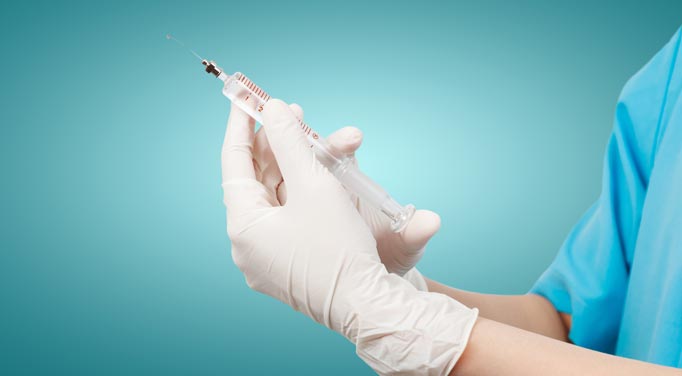Have you ever wondered about hormonal imbalance treatment? Are you suffering from hormonal imbalance and seeking hormonal imbalance treatment? There is a multitude of hormonal imbalance treatment options. How do you know what is best for you? Keep reading to get many of your most common concerns and questions about hormonal imbalance treatment answered, and learn what hormonal imbalance treatment might work best for you.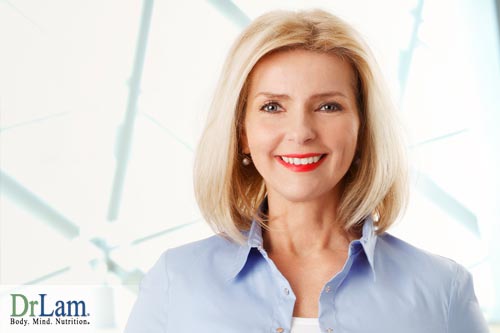
A: Congratulations! Hormonal imbalance treatment might just be an option for you. You appear to be well on your way to being 100 years old if you continue to take care of yourself. To bring the zest back, hormonal imbalance treatment or enhancement treatment can be considered. You may want to start with taking DHEA, pregnenolone, and glutamine as a starter since they all have the ability to enhance the hormonal balance in your body. For those who can afford it, a growth hormone injection or secretagogue is a top consideration as a hormonal imbalance treatment.
A: The ones that have been most extensively studied are DHEA, pregnenolone, growth hormone, melatonin, estrogen, testosterone, and progesterone.
A: Early signs and symptoms include: decrease in muscle mass, increase in body fat, increase in cholesterol level, reduced energy, emotional instability, poor memory and concentration. Many of these are also applicable to a wide variety of other hormonal deficiencies such as thyroid deficiency.
A: Growth hormone replacement has been shown to increase energy levels and improve memory. It is a drug that has to be monitored by a qualified physician. You may want to consider other hormones that reportedly have similar effects (and are much less expensive), such as DHEA or pregnenolone. Alternatively, you can try taking growth hormone secretagogue, a natural substance that promotes the release of growth hormone from your pituitary gland.
A: People under the age of 40 should not take melatonin on a regular and long-term basis because they usually produce adequate amounts on their own. Taking hormones such as melatonin on a long-term basis may lead to the pineal gland (where melatonin is made) to be lazy and production levels may drop even after you stopped taking melatonin.
A: There are two forms of exercise that stimulates growth hormone release. Aerobic exercises result in persistent long-term release of growth hormone in the blood for two hours after you stop exercising. Resistance exercise like weight training causes the spurts of growth hormone releases from the pituitary gland.

A: High intensity weight training has been shown to result in rapid and sustained increase in growth hormone levels in both men and women. Even if you lift at 70-85% of your maximal lift capacity, there is still a three to four-fold increase of growth hormone from your pituitary gland according to certain studies.
A: Both aerobics and strength training exercises boost growth hormone, but only at moderate intensity. Try doing 30 minutes, 3 times at week at moderate to high intensity (70-80 % of your maximum heart rate) and weight training (at 70-85% of your maximum lift capacity) 3 times a week.
A: Exercise, as a whole, is very important for menopause for several reasons. In particular, exercise may help reduce the frequency and severity of hot flashes. Many are able to pass through menopause without hormone replacement therapy just on exercise alone. The best program combines 30 minutes of cardiovascular exercise 3 times a week and strength training 3 times a week. Both cardiovascular and strength training exercises also increase growth hormone levels in your body.
A: Pesticides, plastics, herbicides and a wealth of other new chemicals contain man-made estrogen. People are assaulted today by hormones in meats, dairy products, and drugs, such as hormone replacement therapy. It has only been in the last 5-10 years that people are starting to realize how common environmental hormones are in modern society. These environmental hormones can be toxic to the body by increasing the estrogen levels many times higher than normal. For example, there has been a link between pesticides and breast cancer.
A: Plant, or phyto-hormones, are remarkably similar to human hormones. They can be accepted by human hormone receptor sites and are extremely gentle and safe, exerting a tonic and nourishing effect rather than drug-like activities. They are used as natural alternatives to laboratory-made synthetic estrogen by women who are concerned with the cancer risk of estrogen replacement therapy. Soybeans containing isoflavone, which is a phyto-hormone, have been shown to enhance estrogen levels within the body and relieve many symptoms associated with menopause.
A: Certain smart nutrients have been shown in studies to enhance memory. These include gingko biloba (which improves blood circulation to the brain ) and phosphatidylserine (which is a cell membrane stabilizer). Certain hormones, including growth hormone, DHEA, pregnenolone, and melatonin also have memory enhancing effects, although their mechanism of action is not exactly known at this time.

A: Melatonin is one hormone whose level varies for different people. The general dose is 3 mg, although increasing the dose if you are not getting the effect may not help. On the contrary, many have found that decreasing the dose to 0.5 mg or 1 mg may actually work better than in the regular dose of 3 - 6 mg. The best solution - start at 1 mg and work your way up. Stay with the dosage that works for you.
A: Is often advisable to take both DHEA and pregnenolone for optimal benefits. While pregnenolone is the "mother" of DHEA, pregnenolone is the mother of many other hormones as well. The amount of pregnenolone converted to DHEA is therefore small. If you are on a total hormonal replacement program, you should take both DHEA and pregnenolone, although the amount of DHEA can be less.
A: There are some hormonal imbalance treatment modalities you can use. Many naturally oriented physicians practicing anti-aging medicine believe so. It is done not by replacing the hormone, but rather by stimulating your very own pituitary gland to naturally increase the release of HGH. Substances that stimulate the pituitary gland in this manner are called secretagogues. Secretagogues are all natural and side effects are rare. The results, while not as dramatic as injections, have been very encouraging.
A: Studies have shown that replenishment of growth hormone from a deficient state can lead to improved sex life, skin tone, and help to balance other hormones in the body including testosterone, DHEA, melatonin, pregnenolone, and progesterone.
A: As a sleep aid, melatonin works even better than synthetic sedatives such as barbiturates and benzodiazepenes (like Valium). For starters, Melatonin is effective in small doses and produces no side effects. Plus, the hormone preserves the normal architecture of sleep, including the timing and duration of dream phases characterized by rapid eye movement (REM). The use of Melatonin has been especially effective for older people to help them get a good nights rest. However, you should not take melatonin if you are pregnant or lactating.
A: You can try pregnenolone. It is a natural form of hormonal imbalance treatment. Pregnenolone is another hormone in our body. Its production peaks in your early 20 or thereabouts. By age 65, your body makes only 10-20% DHEA compared to what it did at age 20. In animal studies, DHEA is anti-obesity, anti-diabetes, anti-cancer, anti-autoimmune disease, anti-stress, anti-infectious disease. In other words, it's an all around the anti-aging drug. It has been shown to extend the life of lab animals by 50%. It is also a tremendous immune system enhancer, including proliferation of T-cells and IL cytokine 2. Its anti-aging effect comes about by increasing IGF-1 levels (same as growth hormone). However, one should not take DHEA if there is a history of prostate cancer.

A: Some popular supplements include St. John's Wort, which has a calming effect, and Kava Kava for anxiety. You may also want to consider pregnenolone. In addition to being a powerful anti-stress hormone in its own right, pregnenolone provides the raw material for all of the other anti-stress hormones. Pregnenolone blocks and reverses all of the age-accelerating effects of excess cortisol. Cortisol is a hormone whose level is increased in our body with stress. Cortisol is a "bad" hormone in that respect.
A: Generally, the amount of nutrients is similar since both male and female bodies are made of the same building blocks. There are differences though since their body composition is different. Take for example DHEA. DHEA replacement therapy offers powerful health benefits and is virtually risk-free. Usual starting dose is 25 mg. Men may need more (up to 100 mg), while women (up to 50 mg) may require less to attain the same effect.
A: Our body has a built-in "negative feedback" loop to signal the brain to turn off production of hormones when the amount circulating in the blood is too high. When you take external supplementation to boost your hormone levels, the blood level of hormones rises and this feedback loop is activated. For this reason, most professionals recommend a resting period of a few weeks between cycles of hormonal replacement, including growth hormone and others. Interestingly enough, DHEA is not regulated by a negative feedback loop in the body. In other words, taking supplements of DHEA won't suppress your body's production of these hormones or cause the adrenal gland to rest, resulting in atrophy from the disuse. Theoretically, no "resting period" is required, although it is a good practice to have a resting cycle of a few weeks for every few months of therapy, as with all hormone replacements.
A: The fasting way to increase your growth hormone is through injections. There are side effects with the injections and you must be closely supervised under a qualified physician. You should consider carefully before jumping into this. There are natural alternatives like secretagogues or amino acid stackers available that boost growth hormone levels without the side effects. These may be worth your consideration.
A: You may well have just started into menopause. Consult your physician for estrogen replacement therapy together with progesterone. If you take estrogen only, you may experience "breakthrough" bleeding. If your cholesterol is high, or if you have a history of severe PMS, you might want to consider natural estrogen and natural progesterone.
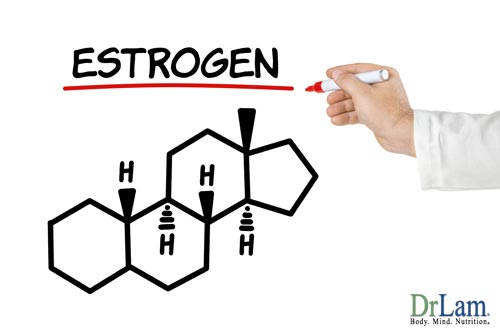
A: Estrogen replacement therapy has been shown to have cardio-preventive effects. It also prevents osteoporosis, but only if you take it continuously for at least a few years. The risk associated with estrogen replacement therapy is the higher incidence of various types of cancer, including breast and ovary. There is no universal consensus among medical doctors on this heated topic. Many natural oriented physicians lead towards nutritional supplements (such as vitamin E) and dietary adjustments (taking tofu) as a better and safer alternative to estrogen. You may want to consider this while doing your investigation.
A: You may want to talk to your physician about checking your thyroid. Hypothyroid can overcome "usual hormone" relief and should be checked if your response is not what you expected. Adding some testosterone (a male hormone) to your program may enhance your well-being and sex life.
A: Oral synthetic estrogen-like Premarin has a more immediate and pronounced effect on your lipid profile compared to natural estrogens. Natural progesterone also has a less opposing effect on estrogen compared to synthetic progesterone-like Provera. You may want therefore to consider starting on synthetic estrogen and natural progesterone for a while until your lipid profile improves. Therefore you can consider natural estrogen.
A: Good genes certainly help towards longevity. Make sure you have a good heart and bones to sustain you into your old age by taking calcium and magnesium. Don't forget to exercise. You may consider hormone replacement therapy to play it safe, including DHEA and pregnenolone.
A: Clinical experiences have shown that those taking 800 I.U of Vitamin E experience hot flash relief when combined with 2-3 grams of Vitamin C and 1 gram of calcium in divided doses. Bioflavonoids like hesperidin also help, although there may be an unpleasant body odor from the perspiration. Black cohosh has been used by Native Americans to relieve menstrual cramps and menstrual symptoms. It has relaxing properties and may affect uterine contractions so that heavy bleeding is decreased. Evening primrose also has similar activities.
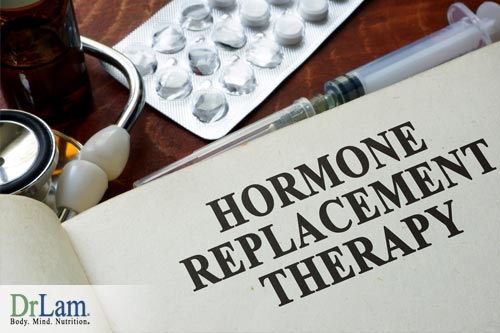
A: Hormones are not indicated for those who currently have breast, endometrial, or ovarian cancer. They should also be avoided by those who have liver disease, thromobhletbitis, or thromboembolism (conditions associated with blood clots) and should be considered carefully for those who have suffered strokes or transients ischemic attacks (TIA).
A: Women who suffer so-called menstrual migraines may find that hormones can worsen these symptoms. However, adjusting the levels of estrogen and progestin can help this problem.
A: Some people, especially women, have noted that taking DHEA can stimulate facial hair growth or cause facial acne. If this occurs, it's best to reduce the dose or stop it completely. Fortunately, these symptoms subside soon after discontinuing the DHEA.
A: Synthetic hormones are typically manufactured by drug companies. Premarin is one such hormone. They are called synthetic as it is structurally different from what your body normally produces. A more natural form of estrogen, one that is chemically similar to what your body normally produces, can be made for you by a "compounding pharmacist" with the prescription by your doctor. Many believe that natural hormones are superior with fewer side effects.
A: You may want to check out your thyroid function. Some of the symptoms you mentioned can be signs of hypothyroidism, among other diseases. For dry skin, zinc, vitamin A, and essential fatty acids are commonly found to be helpful to those with dry skin. However, if a person has hypothyroidism, no improvement would occur as the effectiveness of nutritional supplementation is decreased.
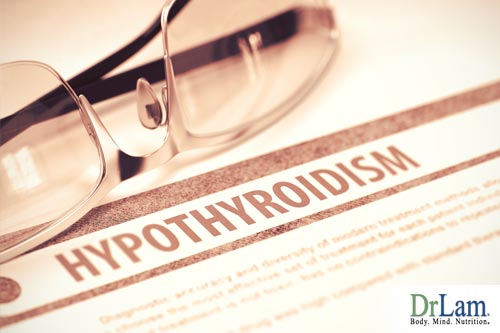
A: If you are not sure, the best thing to do is to read the label and ask the pharmacist. Synthetic thyroid hormones like Synthroidâ have been widely prescribed by physicians for years. Many naturopathic physicians prefer the use of desiccated natural thyroid, complete with all the thyroid hormones, not just thyroxine - the major thyroid hormone. These physicians feel that natural desiccated thyroid resembles that of the body and have fewer side-effects.
A: Thyroid extracts sold in health food stores are required by the Food and Drug Administration (FDA) to be thyroxine-free to prevent the serious consequences of taking too much of this thyroid hormone. Symptoms can include heart disturbances, insomnia, and severe anxiety. However, it is not possible to remove all of the hormones from the gland. In other words, think of preparations from health-food-stores as milder forms of a desiccated natural thyroid. Always check with your doctor first because hypothyroidism can be a serious disease if not properly treated and monitored.
A: Zinc, vitamin E, and vitamin A are helpful nutrients as they function together in many processes, including the manufacture of thyroid hormone. A deficiency of any of these nutrients would result in decreased levels of active thyroid hormone. Low zinc levels are common in the elderly, in addition to hypothyroidism. Vitamin C and the B vitamins riboflavin (B2), niacin (B3), and pyridoxine (B6) are also necessary for normal thyroid production.
A: The recommended dietary allowance (RDA) for iodine in adults is quite small, 150 micrograms. The average intake in the USA is estimated to exceed 600 micrograms per day. Too much iodine can actually inhibit thyroid synthesis through the body's internal negative feedback loop. For this reason, and because the only function of iodine in the body is for thyroid hormone production, it is recommended that dietary levels or supplementations of iodine do not exceed 600 mcg per day for a prolonged period of time. Foods with high iodine content include seafood and sea vegetables such as kelp.
A: Exercise is very important in the treatment of hypothyroidism. Exercise stimulates thyroid gland secretion and increases tissue sensitivity to the thyroid hormone. This is particularly important in overweight people who have hypothyroidism and are dieting. A consistent effect of dieting is a decrease in the metabolic rate as the body strives to conserve fuel. Exercise has been shown to prevent the decline in metabolic rate in response to dieting.
A: Clinical studies have shown that supplementing the diet with chromium improves glucose tolerance, lowers insulin levels, and decreases total cholesterol and triglyceride levels while increasing HDL-cholesterol levels. While some studies have not shown chromium to exert significant effect in improving glucose tolerance in diabetes, there is very little doubt that it is an important mineral in normalizing blood sugar metabolism.

A: A low sugar diet is a good start. Studies have shown that blood sugar levels in patients with Type 2 diabetes decrease with chromium supplementation. Most of the studies are conducted with patients taking from 100 mcg to 400 mcg twice a day. Balancing blood sugar is a tricky business. Start by making sure you are receiving adequate chromium in your diet. A good starting level is a supplementation consisting of 200-400 mcg a day of chromium after consulting with your doctor. It is very important to pick the right kind of chromium. Various forms are available on the market. The best is chromium polynicotinate.
A: Transport of vitamin C into cells is vacillated by insulin, and many diabetics do not have enough intracellular vitamin C. Therefore, a relative vitamin C deficiency exists in many diabetics despite adequate dietary consumption. Vitamin C in doses of 2,000 mg per day has been shown to reduce the accumulation of sorbitol in the red blood cells of diabetics and to inhibit the glycosylation of protein, both of which are linked to many complications of diabetes, especially eye and nerve disease. Although lower levels of vitamin C achieved normal sorbitol levels, supplementation with a minimum of 2 grams of vitamin C daily in diabetics appears warranted due to its other important effect.
A: Nutritional recommendations for PMS include: increase in consumption of plant foods (vegetables, fruits, legumes, whole grain, nuts, and seeds); consume small-to-moderate quantities of meat and dairy products; reduce fat and sugar intake; increase consumption of soy foods; eliminate caffeine intake; and keep salt intake low.
A: Most nutritional experts feel that the ideal intake for magnesium should be based on body weight (6 mg of Magnesium/2.2 pound of body weight). In the treatment of PMS, studies using twice this amount (12 mg per 2.2 pounds of body weight) have been conducted. For a 130-pound person, that means approximately 700 mg of Magnesium. Rather than relying on dietary intake to achieve this amount, most people supplement with additional magnesium. Too much magnesium, however, can cause diarrhea, in which case simply reduce the intake.
A: A landmark double-blind study conducted by Dr. Rudman concluded that a 6-month program of growth hormone injection results in the subjects having a lean body mass of 8.8 %, increase in bone density of 1.6%, and a decrease in fat registered at14.4%. Skin thickness from different sites registered a 7.1% increase. In other words, objective measurements showed that the skin was thicker, muscles were bigger, age-related stomach fat was disappearing, and lost bone from the spine was restored. However, there were side effects which ranged from carpal tunnel syndrome to water retention as well.
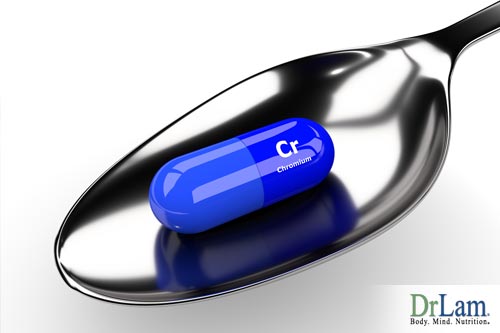
A: A whole chapter can be written on this subject. Many nutritional supplements have been found to have sugar normalizing effects. Clinical studies have been conducted with the following nutrients including chromium 400 mcg - 1,000 mcg; Vitamin C 2,000 - 3,000 mg, Vitamin E 800 - 1,200 IU, Magnesium 600 mg and Garlic. The results are well documented and showed that an optimum level of these nutrients can normalize blood sugar in some people. Since diabetes is a serious disease, always consult your doctor before embarking on any supplementation program.
A: In 1996, the FDA approved growth hormone therapy to treat Adult Growth Hormone Deficiency Syndrome, a syndrome characterized by decreased muscle mass, increased body fat (predominately at intra-abdominal sites), decreased exercise capacity, osteopenia, abnormal lipid profiles (rising HDL), and diminished well-being.
A: Determination takes the form of a complete history and physical examination, together with laboratory studies. Laboratory studies measure the IGF-1 level as a surrogate for growth hormone circulating level. An IGF-1 level of under 350 ng/dl is considered evidence of deficiency, even though the level may be normal for your particular age group. Between 20-40 years old, less than 5% of healthy men have less than 350 I.U. per liter of IGF-1 level. Starting at age 40, most of the adult population, including those seemingly healthy, have IGF-1 levels below 350 ng/dl, especially when over 60 years old.
A: Most People have "elderly" blood levels of IGF-1 (the way growth hormones are measured) by age forty. Human growth hormone replacement therapy should be started usually in the 40s and 50s. Many elects to replenish growth hormone through natural means, such as amino acid supplementation or the use of secretagogues first for a few months. For many, results can be seen. Those who want faster result can be started on a growth hormone injection program after being cleared by their doctors.
A: Exactly how much growth hormone you should take depends on your history and your current condition. Generally speaking, doses range from 4 to 8 units per week (one mg of GH is equivalent to 3 units) divided into dosages determined by your physician. It is normal to inject once or twice a day subcutaneously before sleep and upon arising. There is usually a resting period of one or two days per week as well to ensure that the pituitary gland does not become "lazy."
A: Side effects are relatively small when properly supervised. Commonly, there are some minor joint aches and pains and fluid retention, which disappear in the first month or two. Many are concerned about the increased risk of cancer. But so far, there are no reported cases of cancer directly attributable to growth hormone injection. When you go off GH injections, you will experience a decrease in energy level, although body composition remains unchanged if accompanied by a proper exercise and diet program.
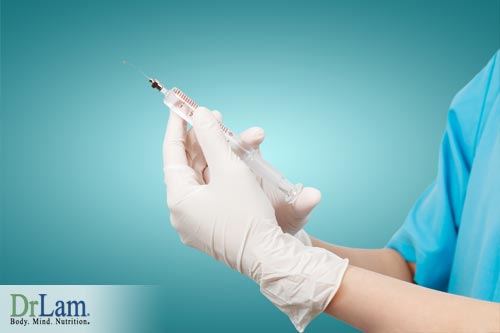
A: The average cost including history, physical examination, laboratory work, and on-going consultation with a qualified physician normally runs around $10,000 per year.
A: There are two main advantages: Lower cost ($1,000-2,000 a year vs. $10,000 for injections) and its relative absence of side effects since it is a natural food supplement. However, you should not expect the same results from using secretagogues as compared to injections. Many start with the natural way and find the result satisfactory after a 3 - 6 month trial. It's a slower way, but is more safe.
A: Glutamine is the most abundant amino acid in the body. It is a conditionally essential amino acid, meaning that the body may not be able to synthesize it when under stress. Glutamine has been shown to increase GH levels in the body. To have this effect, intake of 1-2 grams on an empty stomach one hour before exercise and before bedtime is recommended.
A: Take GH or secretagogue when your insulin level is low, about 4 hours after a meal. It is best to take GH on an empty stomach. As far as secretagogues are concerned, it is best to take it before bedtime on an empty stomach to avoid competition of dietary protein with amino acid peptides of the secretagogues in the gastrointestinal tract if secretagogue is taken orally. If you eat a snack before bedtime, then the next best time to take it is in the morning, but try to avoid food 1-2 hours afterward.
A: A diet rich in complex carbohydrates (such as fruits and vegetables) can help enhance your growth hormone levels. Complex carbohydrates break down slowly and therefore restrict insulin rise in blood. Proteins from plant sources (such as soy or tofu) are easier to digest and should comprise 20-30% of your diet. The balance of your calories should come from fat (preferably from fish or olive oil).
A: A diet high in fruits and vegetables (complex carbohydrates) is the best for optimal hormonal health. A diet high in simple carbohydrates (such as cookies, rice, and potatoes) increases blood sugar and insulin, which in turn decreases the formation of eicosanoids such as PGE1. PGE1 is a precursor to cAMP, which is required for the formation of melatonin, progesterone, testosterone, T4, and estrogen and is also required for the action of GH (growth hormone), ACTH (adrenocorticotropin), FSH (follicle stimulating hormone), LH (luteinizing hormone), and TSH (thyroid stimulating hormone).
A: The current philosophy of growth hormone replacement is to increase the level to that from when you were in your mid-thirties. Many studies are underway to answer exactly this question. Current studies are not conclusive either way. Test results with athletes whose initial IGF-1 were near optimal contribute to our conclusion that GH should not be over-stimulated in people who have close to optimal GH levels. It is most prudent if you are on a human growth hormone injection program to check your blood level every 6 months and allow a 4- week rest after each 12-week cycle.
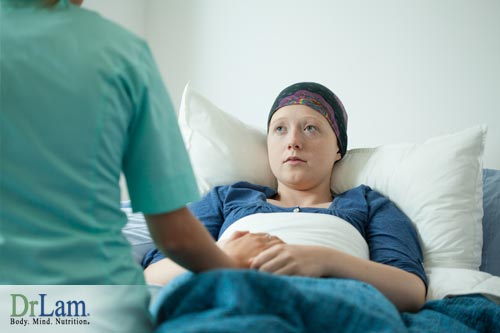
A: There are legitimate concerns that growth hormone replacement could trigger cancer cells to divide more rapidly and promote the growth of tumor. Some evidence supports this idea. Both GH and IGF-1 stimulate the growth of leukemia and lymphoma cells in culture. Large doses of growth hormone also induced cancer in laboratory animals and promote tumor development in rats with chemically induced bladder cancer. GH did not increase the recurrence rate of tumors in children who had become deficient in GH when they were irradiated for brain tumors, leukemia, or other cancer. So far, there is no direct link or association established between people taking GH and developing cancer. On the contrary, no evidence of mutation in cells in culture on chromosomes in living animals have been found in laboratory testing. There are reasons to believe that GH replacement might actually prevent cancer.
A: Laboratory studies have shown that old rats with 40% calorie restriction have GH level same as that of the younger rat fed a normal diet. These old rats live far longer, have delayed aging, and develop less cancer than rats allowed to eat all they want. Low dosages of GH in old mice increase their immune function and significantly prolonged their life expectancy. No human studies that we know of have been done, but suffice to say that the results should not be far off. One of the prominent theories of aging asserts that aging is nothing more than the "pausing "of various endocrinological systems of our body. Total hormonal replacement embraces the concept of replacement of all hormones in our body to optimum levels and not just one hormone, whether it be estrogen or testosterone. Those who embrace this concept focus on replenishing a variety of age-related hormones, including melatonin, DHEA, pregnenolone, growth hormone.
